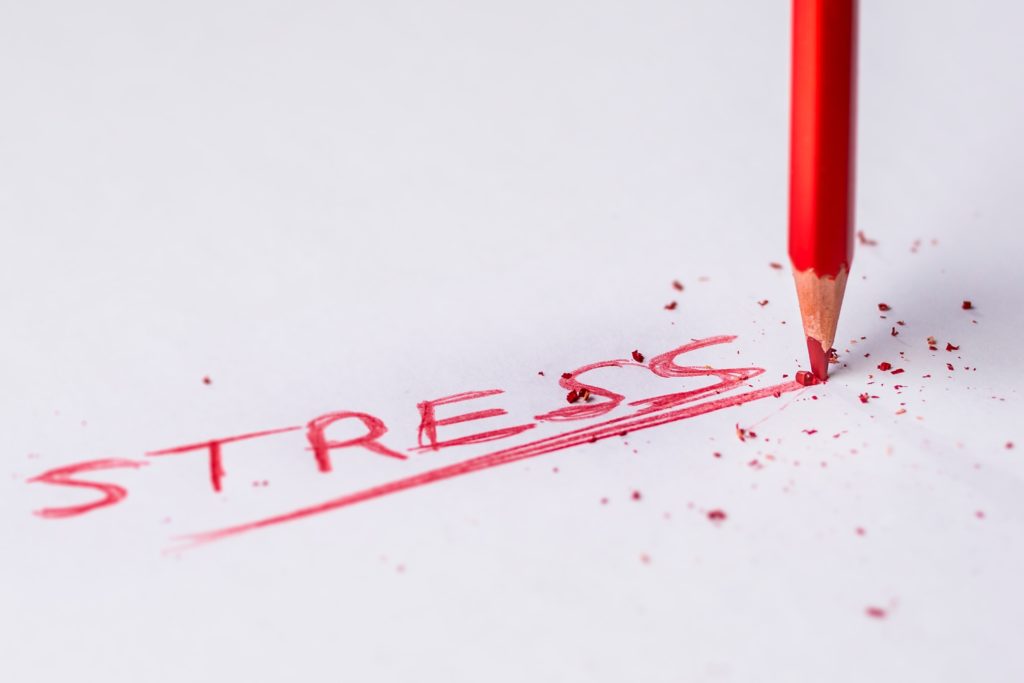
All of us have felt stressed at some point in your lives. It could have been due to workplace issues, exams, relationships or a range of other issues. While stress is an emotion we relate to, it also manifests itself in our bodies. But how do you know when your stress is building up? Here are some physical and emotional symptoms of stress you should watch out for.
Physical symptoms of stress

Frequent headaches. Headaches are a very common symptom of stress. Because of the stress, you may not be sleeping well, feel overworked and tensed, increasing the frequency of headaches. When you feel stressed, there is a sharp rise in the release of cortisol, the “stress hormone”. This leads to the constriction of blood vessels, causing pain and headaches.
If you feel like you’ve been suffering from more headaches frequently, you might be facing stress; it would be a good idea to reflect and identify the reasons for this.
Elevated heart rate. Increased heart rate is a common response to stress. It is a way of your body warning you that there is some outward tension you may be facing. This is due to the release of adrenaline (epinephrine), a hormone from the adrenal glands when placed in a stressful environment. It causes chest pains, elevates your heart rate and short-term boost of energy.
A good way to bring your heart rate back to normal during such a time is to focus on your breathing and practice simple breathing exercises to help you feel relaxed.
Excessive sweating. When stressed and tensed, your body temperature may tend to rise. In order to cool down, you may end up sweating a lot. Increased nervousness also leads to sweating. If you repeatedly start to sweat in the presence of a certain individual or in a particular situation, it could be a stressor for you.

Low energy levels. With prolonged stress, it is common to have reduced energy levels. Your mind is racing, you are under pressure and may be unable to cope. Due to the above mentioned symptoms, your body won’t be in an optimal place, and you might feel tired. Even the excess presence of cortisol affects your energy levels.
In order to recharge, it is important to take a break, refresh yourself and spend time doing things that make you happy, including watching some feel-good movies.
Emotional symptoms of stress
Increased irritability. When stressed, you are tense and nervous so more likely to feel irritable and angry. These are common with people who face stress. All sorts of stress cause irritation, including stress at work, personal issues, being stuck in traffic or even exam stress.
Change in eating habits. Another common symptom of stress, people either tend to start overeating or lose their appetite for food. Some may use food as a coping mechanism and eat excessive junk or sugary foods to feel better. This is because when you’re stressed, there is a spike in the amount of epinephrine (the fight/flight hormone) released into your body. Eating sugar-rich and processed foods give joy to your brain and help in making you feel better.
In contrast, some may lose their appetite for food as they are too keyed up and ignore cues to eat. Excess cortisol in your body leads to lowering the function of the immune system, causing you to not want food.
Each person is different and your body may react differently than someone else, but it’s best to follow eating habits that help you combat stress and sleep better.
Mood swings. When you’re stressed, you are irritable, have headaches, may not sleep well and your eating habits suffer as well. So it is common to also face mood swings. You are in a constant state of worry and the strain takes its toll on you, causing your mood to fluctuate a lot.
Remember, it is okay to feel stressed and if you can identify erratic behavior and mood swings, try to balance your mind and control stress through meditation.

Lack of concentration. If you’re unable to concentrate and focus on the task at hand, and your mind wanders a lot, it could be stress. When you’re overloaded and tense, it’s difficult to focus, be it stress at work, stress at home or academic stress. Taking a break during lunch or tea-time, practicing mindfulness which allows you to stay in the moment and focus on one thing and thought at a time, can help in reducing stress and helping you focus.
These are some of the symptoms of stress that you can use to identify how you are feeling. If you are facing some or many of these symptoms, you should reflect on the reasons for stress or even consult a doctor for the same.
There are various reasons for stress and several stress management techniques and exercises that can help.
The Evolve app is now live globally on Android & Apple, click here to try for free!
Explore our guided audios designed specially to help you reduce and manage stress, in order to balance yourself.
